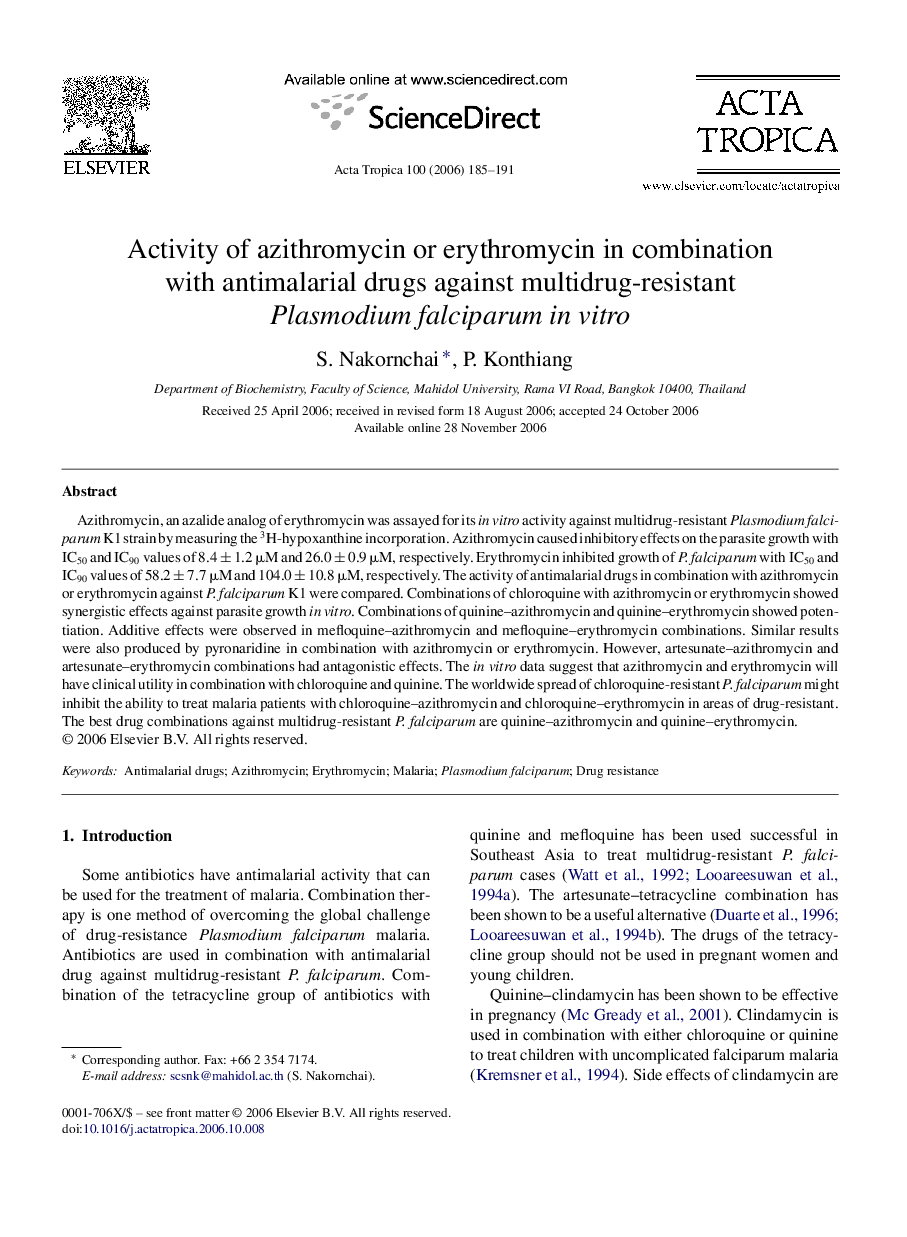| Article ID | Journal | Published Year | Pages | File Type |
|---|---|---|---|---|
| 6128419 | Acta Tropica | 2006 | 7 Pages |
Abstract
Azithromycin, an azalide analog of erythromycin was assayed for its in vitro activity against multidrug-resistant Plasmodium falciparum K1 strain by measuring the 3H-hypoxanthine incorporation. Azithromycin caused inhibitory effects on the parasite growth with IC50 and IC90 values of 8.4 ± 1.2 μM and 26.0 ± 0.9 μM, respectively. Erythromycin inhibited growth of P. falciparum with IC50 and IC90 values of 58.2 ± 7.7 μM and 104.0 ± 10.8 μM, respectively. The activity of antimalarial drugs in combination with azithromycin or erythromycin against P. falciparum K1 were compared. Combinations of chloroquine with azithromycin or erythromycin showed synergistic effects against parasite growth in vitro. Combinations of quinine-azithromycin and quinine-erythromycin showed potentiation. Additive effects were observed in mefloquine-azithromycin and mefloquine-erythromycin combinations. Similar results were also produced by pyronaridine in combination with azithromycin or erythromycin. However, artesunate-azithromycin and artesunate-erythromycin combinations had antagonistic effects. The in vitro data suggest that azithromycin and erythromycin will have clinical utility in combination with chloroquine and quinine. The worldwide spread of chloroquine-resistant P. falciparum might inhibit the ability to treat malaria patients with chloroquine-azithromycin and chloroquine-erythromycin in areas of drug-resistant. The best drug combinations against multidrug-resistant P. falciparum are quinine-azithromycin and quinine-erythromycin.
Related Topics
Life Sciences
Immunology and Microbiology
Parasitology
Authors
S. Nakornchai, P. Konthiang,
